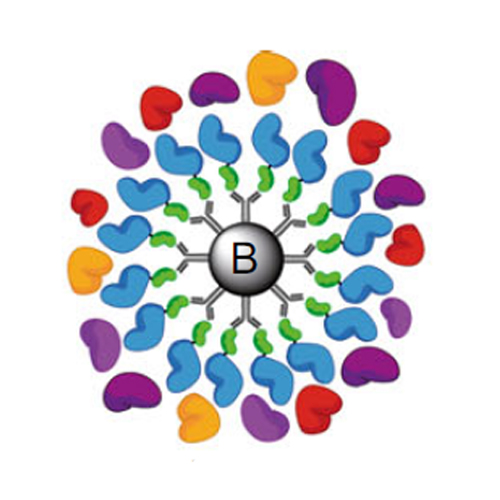Redirected nuclear glutamate dehydrogenase supplies Tet3 with α-ketoglutarate in neurons
2021-07-02
Franziska R. Traube, Dilara Özdemir, Hanife Sahin, Constanze Scheel, Andrea F. Glück, Anna S. Geserich, Sabine Oganesian, Sarantos Kostidis, Katharina Iwan, René Rahimoff, Grazia Giorgio, Markus Müller, Fabio Spada, Martin Biel, Jürgen Cox, Martin Giera, Stylianos Michalakis, Thomas Carell
Tet3 is the main α-ketoglutarate (αKG)-dependent dioxygenase in neurons that converts 5-methyl-dC into 5-hydroxymethyl-dC and further on to 5-formyl- and 5-carboxy-dC. Neurons possess high levels of 5-hydroxymethyl-dC that further increase during neural activity to establish transcriptional plasticity required for learning and memory functions. How αKG, which is mainly generated in mitochondria as an intermediate of the tricarboxylic acid cycle, is made available in the nucleus has remained an unresolved question in the connection between metabolism and epigenetics. We show that in neurons the mitochondrial enzyme glutamate dehydrogenase, which converts glutamate into αKG in an NAD+-dependent manner, is redirected to the nucleus by the αKG-consumer protein Tet3, suggesting on-site production of αKG. Further, glutamate dehydrogenase has a stimulatory effect on Tet3 demethylation activity in neurons, and neuronal activation increases the levels of αKG. Overall, the glutamate dehydrogenase-Tet3 interaction might have a role in epigenetic changes during neural plasticity.








